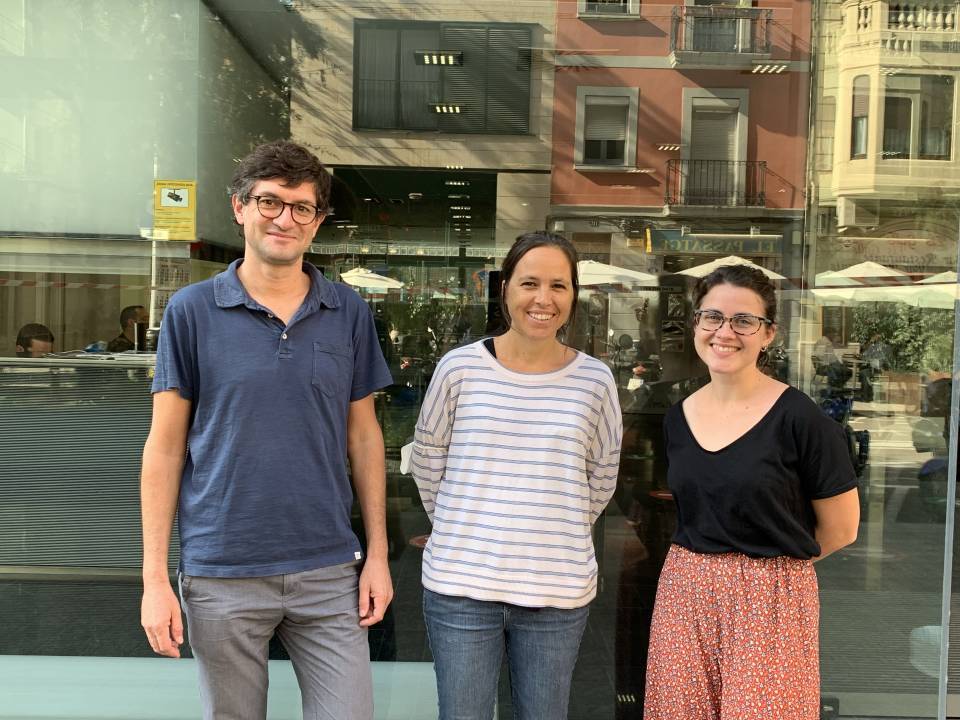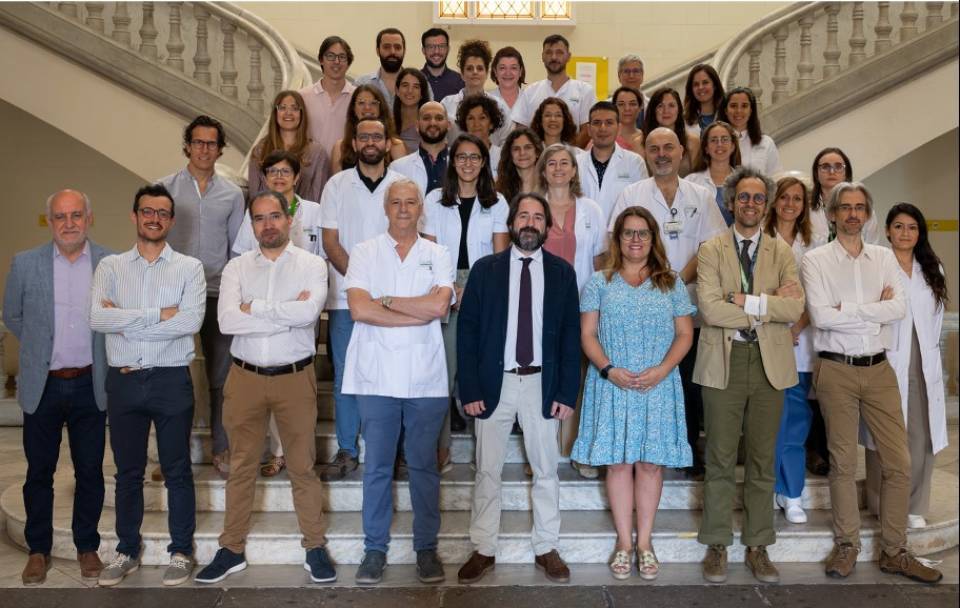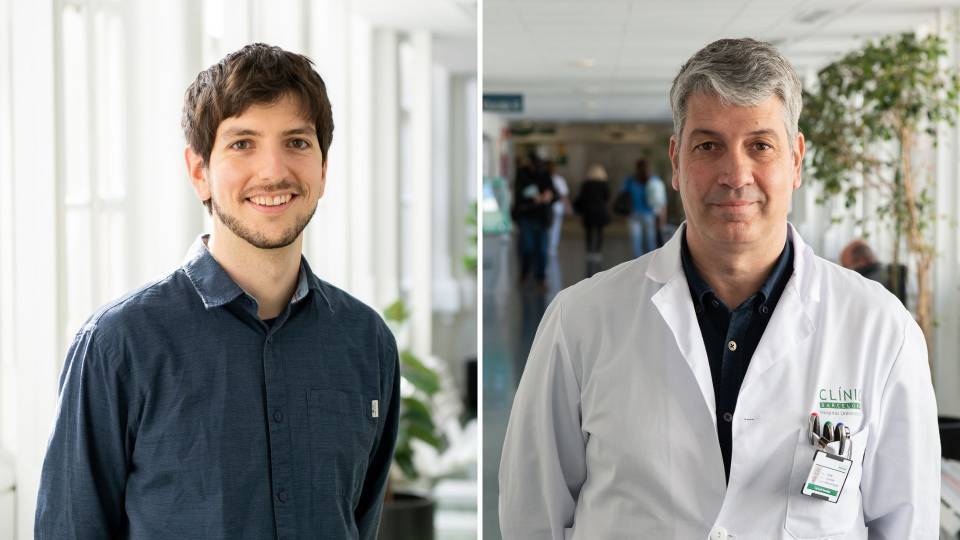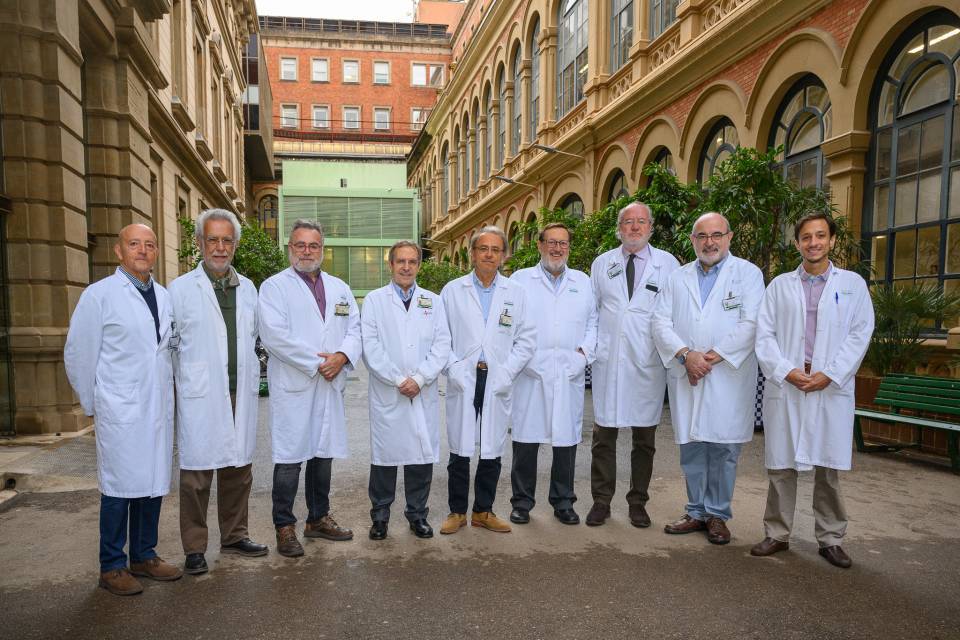In advanced liver diseases, both repair of the tissue and regeneration of the liver are compromised. This causes organic dysfunction and, eventually, liver failure. In this lesion context, there is a proliferation of the ductular reaction, a compensatory response by the body that attempts to restore the liver’s physiological function.
In this study, published by the journal Hepatology, the researchers from the IDIBAPS Liver cell plasticity and tissue repair research group, led by Pau Sancho-Bru, demonstrate, for the first time, that the ductular reaction promotes hepatic regeneration through the formation of blood vessels. The team from the Translational Control of Liver Diasease and Cancer group, led by Mercedes Fernández-Lobato, also collaborated in the research.
“To date, the work carried out has focused on the capacity of the ductular reaction to regenerate the biliary tree, in other words the conducts through which the bile travels from the liver to the intestine, and the hepatic parenchyma. Our finding, however, shows that the cells that participate in the ductular reaction, a heterogeneous population that includes cholangiocytes and immature liver cells, also promote hepatic angiogenesis", explains Mar Coll, first-named author of the article, together with Silvia Ariño.
The cells carry out the process of formation of new blood vessels through the Slit2-Robo1 molecular pathway. The link between the protein Slit2 and its receptor Robo1 promotes angiogenesis in tumors, but it was not known whether it also played this role in the regeneration of the liver and chronic hepatic disease. Furthermore, the analysis of a group of patients with alcohol-related liver diseases confirms the correlation between the increase in Slit2-Robo1, the ductular reaction and the severity of the disease.
These results suggest that the Slit2-Robo1 pathway may be a potential therapeutic target due to power of the regeneration in chronic hepatic diseases.
Reference article
Mar Coll, Silvia Ariño, Celia Mártinez-Sánchez, Ester Garcia-Pras, Javier Gallego, Anna Moles, Beatriz Aguilar-Bravo, Delia Blaya, Júlia Vallverdú, Teresa Rubio-Tomás, Juan José Lozano, Elisa Pose, Isabel Graupera, Andrea Fernández-Vidal, Albert Pol, Ramon Bataller, Jian-Guo Geng, Pere Ginès, Mercedes Fernández, Pau Sancho-Bru. Ductular Reaction Promotes Intrahepatic Angiogenesis Via Slit2-Robo1 Signaling. Hepatology. 2021 Sep 7. doi: 10.1002/hep.32140.




